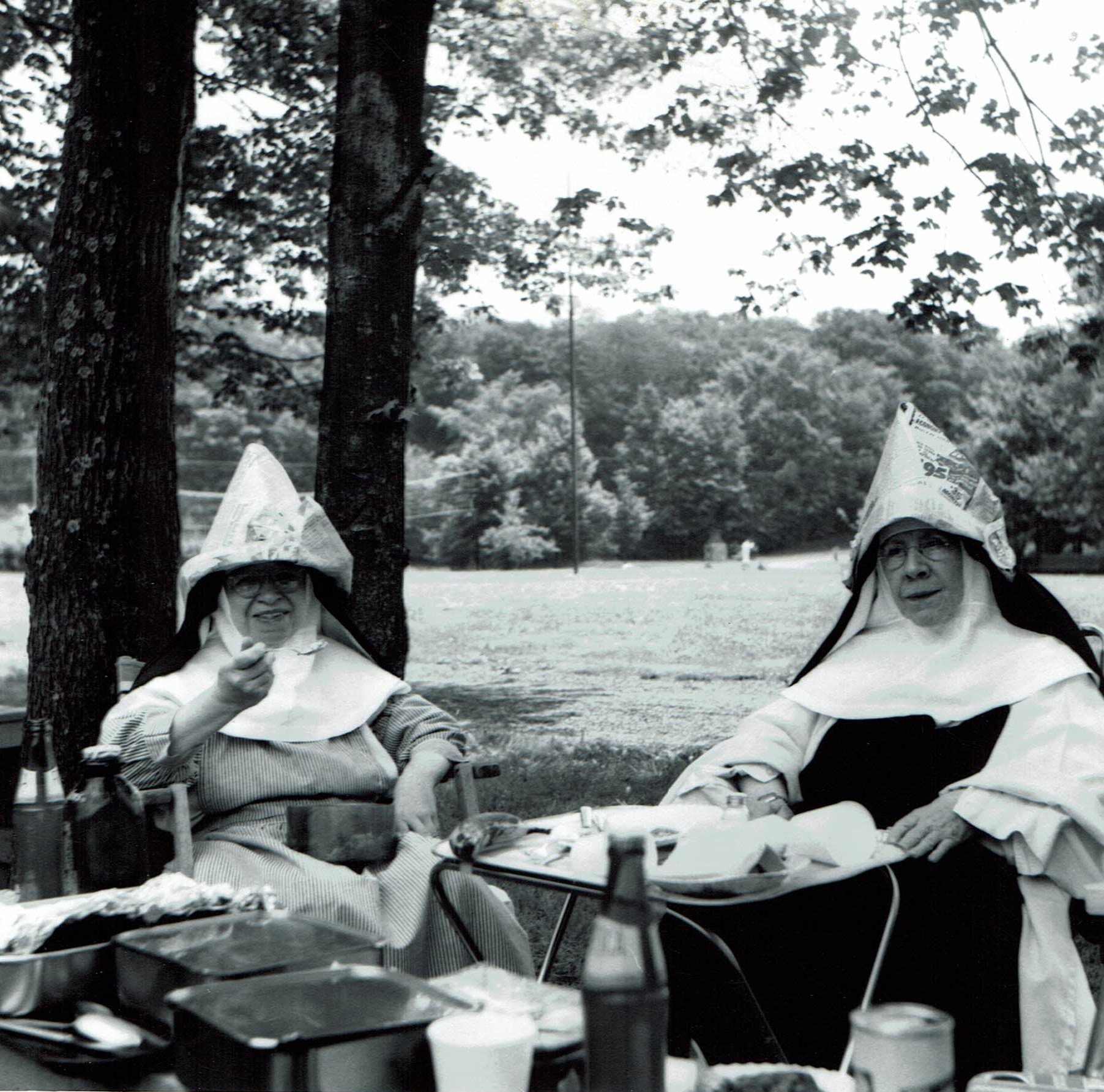Grant Us Grateful Hearts
It's hard for me to believe we're coming up on the end of the monastery's seventy-fifth jubilee. Looking back, this year has been a time of profound memories and new blessings. We've remembered sisters who have passed and we've admitted new sisters to our community. We've recalled old benefactors, former chaplains, and bishops, and we've made friendships with new ones. We've reminisced about “the way things were” and we've made new plans for the future. For all this, and for God's constant care, we are grateful.
Recently, I was complaining to a sister about a personal disappointment: “I asked for things to be arranged this way and instead they were done that way!” Only a few days later, however, I came across a picture that proved my memory was off. I was wrong! For whatever reason, my memory betrayed me as my emotions took a detour down the lane of self-pity.
Memory is funny like that. It can be our best friend or our worst enemy. It can lead us into peaceful waters as we recall God's goodness or it can drag us into an undertow of pain and resentment as we chew on the ways we have been disappointed by ourselves and others in life. What we choose to remember shapes who we are.
Traveling back through seventy-five years of community memories this year has been an exercise in gratitude for all of us, but it has also been a shared act of faith.
Alongside pictures of a spanking new monastery dedicated in 1958 are pictures of a burnt-out shell of a building where three nuns died in 1955. Alongside pictures of happy young sisters boarding a steamer for Africa in 1965 are pictures of family and friends saying goodbye to these beloved daughters and sisters whom they did not expect to see again in this life. And alongside all our piles of community photos is a much larger collection of hopes and dreams, triumphs and disappointments, prayers and personal sacrifices from the past seventy-five years that simply aren't recorded and aren't remembered by anyone left alive today.
What do difficult memories, and even lost memories, mean in our lives? Faith answers that it is the Truth himself who stands above and behind all these things. Jesus Christ, the eternal Word, knows the meaning of history in its most grandiose strokes and in its most forgotten details because he knows the infinitely loving heart of the Father.
God's love, his goodness and his majesty are reality. Jesus, the one crucified out of love, is the totally adequate response to the Father; he is gratitude, adoration, and total self-offering. By putting on the mind of Christ, as Saint Paul admonishes us, we too become capable of thanking God, adoring him, and giving ourselves to him from the heart. And when “we have come to know and to believe in the love God has for us” (1 John 4:16), what we remember about ourselves, our families and communities, changes.
That’s why choosing to remember first our heavenly Father is the only way to remember the events of our lives truly. This practice of custody of the thoughts is a classic a monastic discipline that everyone can share. I can assure you that it leads away from sadness and self-pity into the luminous paths of gratitude.
As our anniversary year comes to an end, we continue to remember and pray for all of you, our friends and benefactors. At every regular chapter we recall your generosity, which has filled this community with happy memories, and we turn to God with this request: O Lord, grant us grateful hearts.
-A Sister
Please share our jubilee posts with family and friends! All pictures and texts are property of the Monastery of Our Lady of Grace and may not be reproduced without permission.
























